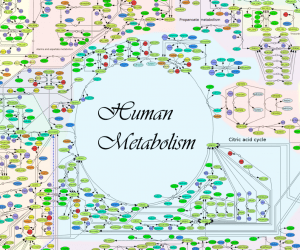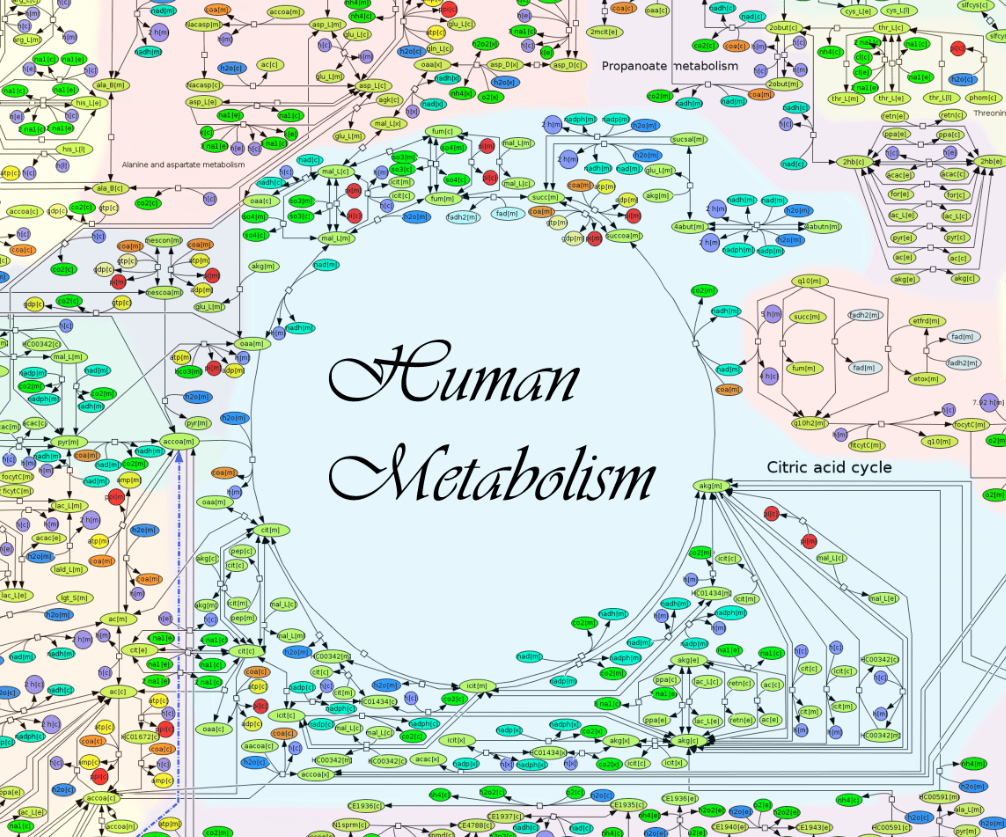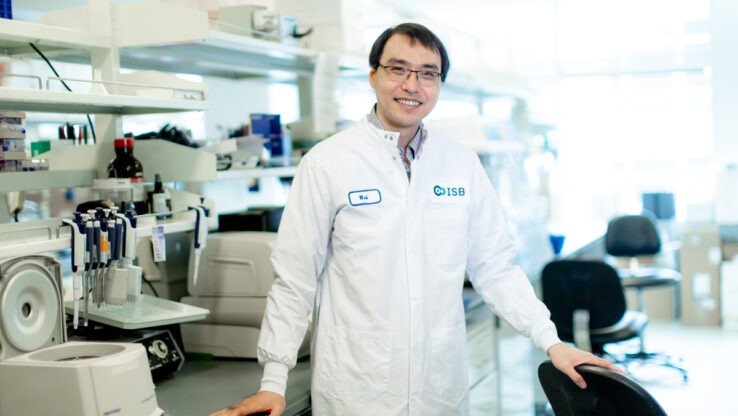Publications: A ‘Google Map’ of Human Metabolism
 isbscience.org
isbscience.org/news/2013/03/03/publications-a-google-map-of-human-metabolism/
ISB associate professor Nathan Price and Vangelis Simeonidis, a visiting scholar from Luxembourg Centre for Systems Biomedicine (LCSB is a major strategic partner with ISB), contributed to this paper – “A community-driven global reconstruction of human metabolism” – that was published today in Nature Biotechnology. An excerpt describing the collaborative project from a press release is below. An interactive map is forthcoming.

Image from humanmetabolism.org.

From Medicalxpress.com: “An international consortium of university researchers has produced the most comprehensive virtual reconstruction of human metabolism to date. Researchers liken Recon 2 to Google mapping for its ability to merge complex details into a single, interactive map. For example, researchers looking at how metabolism sets the stage for cancerous tumor growth could zoom in on the map for finely detailed images of individual metabolic reactions or zoom out to look at patterns and relationships among pathways or different sectors of metabolism. Credit: Anna Dröfn Daníelsdóttir, Freyr Jóhannsson, Soffía Jónsdóttir, Sindri Jarlsson, Jón Pétur Gunnarsson & Ronan M. T. Fleming from the University of Iceland.”
Read more.
 isbscience.org/news/2013/03/03/publications-a-google-map-of-human-metabolism/
isbscience.org/news/2013/03/03/publications-a-google-map-of-human-metabolism/








